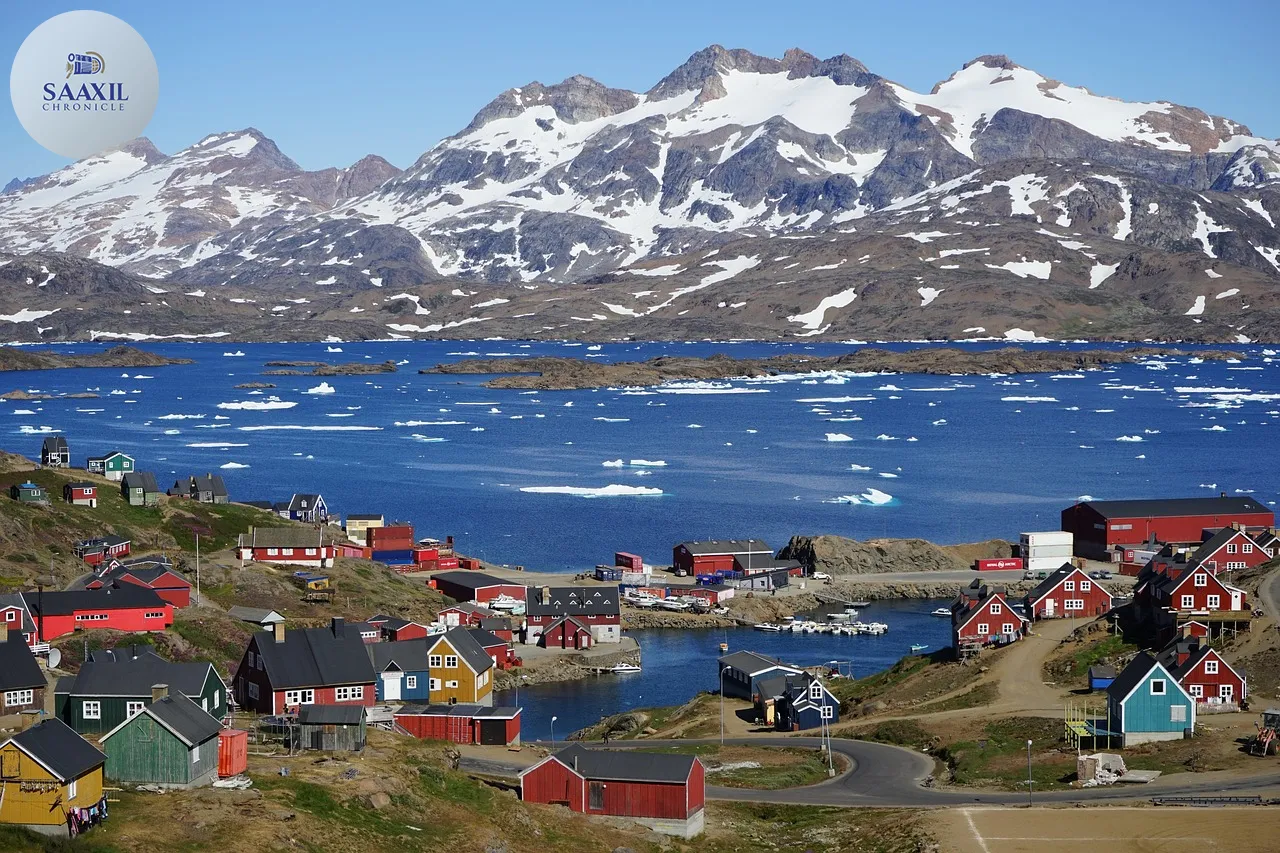US Vice-President JD Vance and his wife Usha are set to visit Greenland, marking a significant moment in international diplomacy. This visit comes amid heightened tensions following former President Donald Trump’s controversial remarks about acquiring Greenland. The trip, originally planned with grandeur, has been scaled down due to the diplomatic row it sparked. Greenlandic and Danish leaders have expressed their discontent, making it clear that the visit is unwelcome, reflecting the complexities of US-Denmark relations regarding the autonomous territory.
Diplomatic Tensions Flare
The visit is scheduled for Friday at Pituffik, a remote US military base in northwestern Greenland. This location, known for its strategic importance, has become the epicentre of the diplomatic discord. The leaders in Nuuk, Greenland’s capital, and Copenhagen have openly opposed the visit, citing Trump’s previous threats as a breach of diplomatic etiquette. The US administration’s insistence on the visit despite local opposition has further strained relations.
Greenland, a semi-autonomous territory under Denmark, has historically maintained a neutral stance in international politics. However, Trump’s acquisition remarks have stirred nationalistic sentiments, with local leaders emphasising Greenland’s autonomy and their disinterest in becoming a bargaining chip in international politics. The scaled-down itinerary reflects these tensions, focusing on the military base instead of broader engagements.

Historical Context of US-Greenland Relations
Greenland’s strategic importance has long been recognised, primarily due to its location and natural resources. The US established a military presence in Greenland during World War II, and Pituffik Base has since been a critical asset in US defence strategy. However, the idea of purchasing Greenland resurfaced in 2019 when Trump publicly expressed interest, drawing ire from both Greenlandic and Danish officials.
The concept of territorial acquisition is seen as outdated and imperialistic by many, including experts who argue that such rhetoric undermines contemporary international relations. The diplomatic row that followed Trump’s remarks highlighted the sensitivity surrounding Greenland’s status and the broader implications for US-European relations.
Local Reactions and Political Implications
The Greenlandic government has been vocal about the visit, with Premier Múte Bourup Egede stating that Greenland is not for sale and criticising the US administration for not respecting their stance. This sentiment resonates across Greenland, where there is a strong sense of identity and a desire for greater autonomy from Denmark.
Political analysts suggest that the visit could have long-term implications for US-Denmark relations. While the US maintains that the visit is routine and focused on strengthening military cooperation, the underlying tensions suggest a more complex narrative. Danish Prime Minister Mette Frederiksen has also expressed concern, urging diplomatic dialogue over aggressive posturing.
Expert Insights on the Diplomatic Row
Experts in international relations have weighed in on the situation, highlighting the delicate balance between national interests and diplomatic respect. Dr. Lars Petersen, a professor of international relations, notes that the US must tread carefully to avoid exacerbating tensions with its European allies. “The US has to recognise the autonomy of Greenland and respect the sentiments of its people,” Petersen emphasises.
Furthermore, the visit raises questions about the US’s approach to foreign policy under the current administration. While Vice-President Vance’s visit is portrayed as a gesture of goodwill, the underlying tensions suggest a need for more nuanced diplomacy. Analysts argue that fostering dialogue and mutual respect is crucial in navigating such complex international issues.
Future Prospects and Potential Outcomes
As the visit approaches, attention turns to its potential outcomes. While the visit is unlikely to resolve the underlying issues, it serves as a reminder of the complexities in US-Greenland relations. The diplomatic row underscores the need for a more collaborative approach, respecting Greenland’s autonomy while addressing strategic interests.
Moving forward, both Greenland and Denmark are likely to push for clearer communication and respect in future engagements with the US. The visit could also catalyse discussions on Greenland’s future, including its relationship with Denmark and its role on the international stage.
In conclusion, Vice-President JD Vance’s visit to Greenland, set against the backdrop of Trump’s controversial acquisition remarks, highlights the intricate dynamics of international diplomacy. As Greenland and Denmark brace for the visit, the focus remains on navigating the tensions with respect and dialogue, ensuring that all parties’ interests and sentiments are acknowledged and respected.





